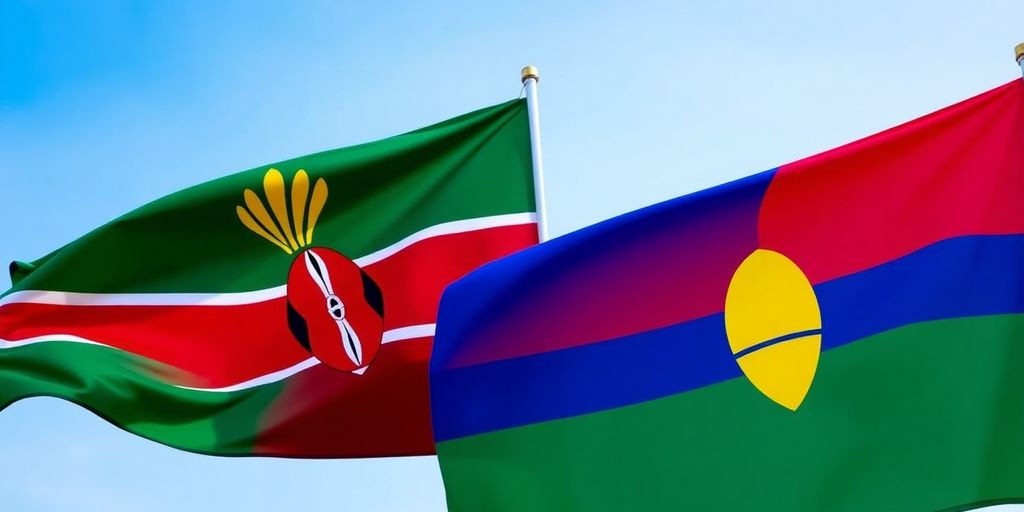In a groundbreaking diplomatic move, Kenya has officially recognized Kosovo as an independent state, becoming the first country to do so in nearly five years. This decision comes amidst ongoing geopolitical tensions surrounding Kosovo’s status, which has been a contentious issue since its declaration of independence from Serbia in 2008.
Key Takeaways
- Kenya has recognized Kosovo as an independent state.
- Serbia attempted to influence Kenya’s decision but was unsuccessful.
- This recognition may impact Kenya’s diplomatic relations with Serbia and other countries.
Background on Kosovo’s Independence
Kosovo declared independence from Serbia in February 2008, a move that has been recognized by over 110 countries, including the United States and most European Union member states. However, Serbia, backed by allies such as Russia and China, continues to assert that Kosovo is part of its sovereign territory.
Serbia’s Diplomatic Efforts
In the lead-up to Kenya’s recognition of Kosovo, Serbian officials engaged in extensive diplomatic efforts to dissuade Kenya from making this decision. These efforts included:
- High-Level Meetings: Serbian diplomats met with Kenyan officials to discuss the implications of recognizing Kosovo.
- Economic Incentives: Serbia offered various economic partnerships and support to Kenya in exchange for its non-recognition of Kosovo.
- International Advocacy: Serbia sought support from its allies to pressure Kenya diplomatically.
Despite these efforts, Kenya’s government chose to recognize Kosovo, highlighting its commitment to international law and the principle of self-determination.
Implications of Kenya’s Recognition
Kenya’s recognition of Kosovo could have several implications:
- Diplomatic Relations: This move may strain Kenya’s relations with Serbia and its allies, potentially affecting trade and diplomatic engagements.
- Regional Influence: Kenya’s decision could inspire other nations in Africa to reconsider their stance on Kosovo, potentially leading to further recognitions.
- International Law: The recognition reinforces the argument for self-determination and may influence ongoing discussions about statehood and sovereignty in international forums.
Reactions to the Decision
The recognition of Kosovo by Kenya has elicited a range of reactions:
- Support from Kosovo: Kosovo’s government welcomed the decision, viewing it as a validation of its sovereignty and a step towards greater international acceptance.
- Condemnation from Serbia: Serbian officials expressed disappointment and condemned Kenya’s decision, reiterating their stance that Kosovo remains an integral part of Serbia.
- Mixed Reactions Globally: Other countries are observing the situation closely, as Kenya’s recognition could set a precedent for similar actions in the future.
Conclusion
Kenya’s recognition of Kosovo marks a significant development in the ongoing debate over Kosovo’s status and self-determination. As the geopolitical landscape continues to evolve, the implications of this decision will likely resonate beyond the immediate region, influencing international relations and diplomatic strategies worldwide.






